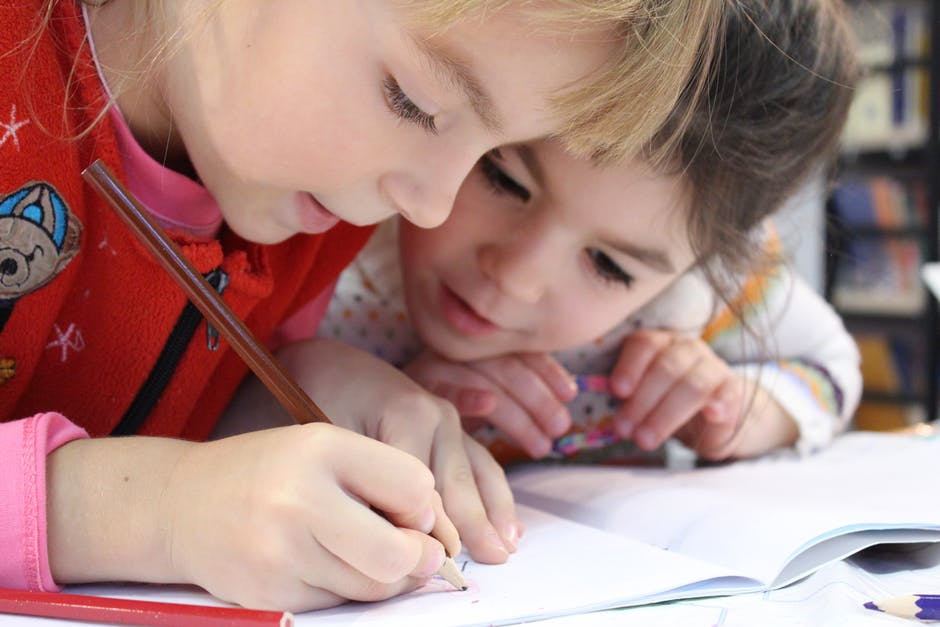The first years of your children’s lives lay the foundation for their future success in school and in life. This is why early childhood education (ECE) is so important. In fact, by the time your children go to kindergarten, their brain has already reached 90 percent of its growth.
The benefits your children receive from ECE depend on the quality of early childhood services. This includes how early childhood educators understand the development of young children.
It’s important for you to have confidence in your adolescent’s educational and early learning program. Also, you want their teachers to know about early childhood social and emotional development.
Are you looking for an early childhood education program with teachers who’ll keep your children’s curiosity alive and encourage their love for learning?
Do you know what ECE actually is? Read more about the five important things you should know about early childhood education.
Table of Contents
1. What Is Early Childhood Education?
The learning journey your children take from infancy to school age is usually the first time they’re separated from you. This is when early childhood education comes into play.
Whether your children go to a nursery school, family daycare, or preschool, their early childhood education begins there. These are the supportive environments for your children to learn and grow.
2. Benefits of ECE
Age-appropriate early childhood education offers the following benefits for you and your children:
- Provides enrichment experiences that increase sensory and cognitive development
- Provides childcare so you can work outside the home
- Promotes play, which strengthens social development
- Lays the basis for later school success
- Enhances emotional development
- Strengthens self-control
- Boosts self-motivation
- Increases self-confidence
You can see how these ECE benefits help your children become well rounded emotionally and intellectually.
3. Quality of ECE Educators
When you choose ECE for your children, make sure it offers a high-quality program. If the caregivers and educators don’t have quality training, your children won’t get the education that leads to healthy development.
Also, check the turnover in the program. High turnover can disrupt any caring relationships your children form with their teachers. This can affect their language development and social skills.
The caregivers you choose have a huge impact on your children’s motivation, self-control, behavior, and development. Early childhood education from birth to age five is a time of intense growth and development.
Your children’s motor development, thinking skills, and emotions change quickly. During these years, they develop their capacity for trust, empathy and focused learning. Nurturing and trained educators are essential for your children’s healthy development and learning.
4. Targets Academic and Social Skills
Since your children’s brains development so rapidly during the early education ages, it’s essential that ECE educators focus on literacy, language development, and early STEM skills.
Also, it’s just as important for ECE teachers to have the training to help your children develop emotional and social skills.
5. Levels the Playing Field
The diversity of children entering kindergarten from different home lives and learning experiences means many will be at a disadvantage. Some will know how to cope with being away from home, while others will be emotionally distraught.
In addition, some will be far ahead in literacy and math while others will be just beginning.
High-quality childcare and preschools from birth to age five levels the playing field for children. With ECE, all children can enter kindergarten with the same vocabulary, math skills, and social skills. This way, they don’t fall behind in school later.
ECE Educators Should Know Developmental Stages
Qualified ECE educators should understand the full gamut of early childhood development. During this time, the way your children express their emotions is tied to behavior. If they don’t develop self-control, they quickly become frustrated and uncontrollable.
A caring environment with trained teachers, who understand children’s developmental stages, can help your children become vibrant, happy and well adjusted.
Questions to Ask When Looking for Early Childhood Education
Asking the following questions can help you choose the best ECE environment for your children. You can also find out more information in the early childcare workforce registry explained in this article.
- Do your programs focus on developmentally appropriate academics?
- What kind of curriculum are you implementing?
- Are you following state or federal standards for your curricula?
- What is the nature of your ECE workforce?
- What are your educators’ education and training requirements?
- How does your preschool curriculum emphasize emotional and social development?
- Do you engage the family in activities?
- Do you put in place a reading readiness and cognitive thinking program?
- What are your school safety policies?
- Do your teachers receive regularly scheduled training and certifications?
These are just a few of the questions you want to ask about the early childhood education services you’re researching. Choose the one that meets your ECE expectations and your children’s needs.
Essential Qualities of an Early Childhood Educator
When you’re researching early childhood education, look for teachers who have the skills, knowledge, and dispositions to work with young children. Teachers should know the foundations of development and the most updated practices in ECE.
They should also show they understand the curriculum appropriate for young children with regard to their families and communities. ECE lead teachers and assistants should always be fair, ethical and respectful of the children they care for and their families.
Here are the qualities your children’s ECE teachers should demonstrate:
- Knowledge of child development
- Professional attitude
- Patience
- Sense of humor
- Energy
- Maintain consistency
- Set limits
- Positive attitude
- Interpersonal skills
- Communication skills
- Observe children objectively
- Anti-biased teaching
ECE teachers and assistants spend all day with your children. This is why all these skills and qualities of early childhood educators are so important.
Early Childhood Education Is the Key to Well Rounded Children
Now that you know the five important things about early childhood education, research your local ECE programs. Finding highly trained teachers in a safe and educational program will help form your children’s hearts and minds.
If you enjoyed this article on early childhood education, read other helpful content on our lifestyle blog.
















